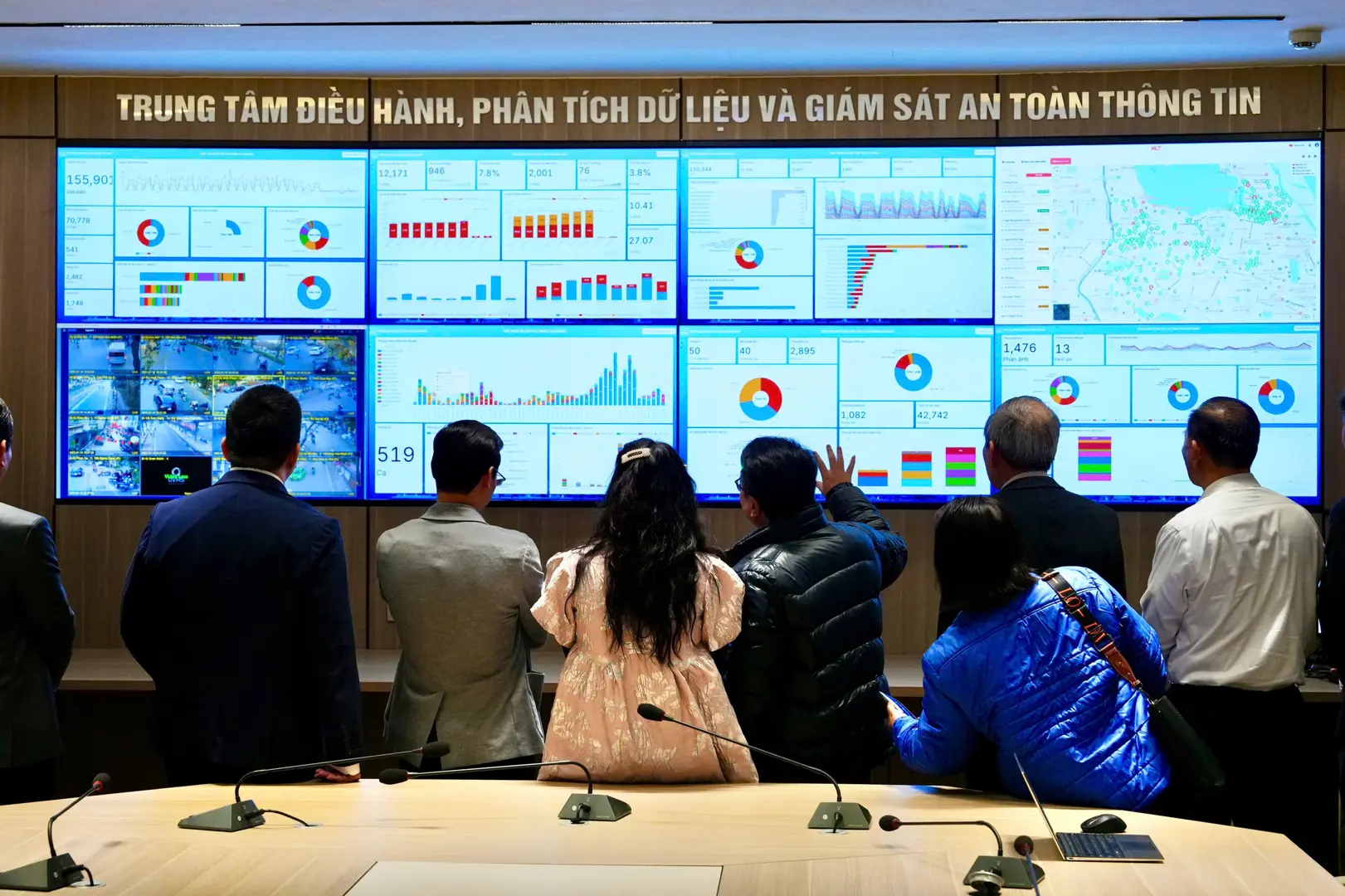Saturday, 13:23 10/08/2019
UNCLOS sets legal regimes for maritime rights and exploitation within EEZ
UNCLOS stipulates legal regimes for all maritime zones of coastal States, including internal waters, territorial sea and contiguous zone, exclusive economic zone and continental shelf.
The 1982 United Nations Convention on the Law of the Sea (UNCLOS) – the second most important universal legal treaty after Charter of the United Nations since the World War II – set limits of maritime zones under sovereignty, sovereign rights and jurisdiction of coastal States.
It stipulates legal regimes for all maritime zones of coastal States, including internal waters, territorial sea and contiguous zone, exclusive economic zone and continental shelf.
States agree upon what stipulated in UNCLOS, including the maritime zones beyond national jurisdiction, including High seas and the international seabed Area (seabed and subsoil as well as mineral resources as common heritage of mankind).
Core provisions of UNCLOS contain legal status of exclusive economic zones, continental shelf, regime of islands, artificial structures and cooperation for protection of marine environment, conservation and management of marine resources.
Under the light of the provisions of UNCLOS on EEZ and continental shelf, all activities of exploring and exploiting natural resources in EEZ and continental shelf of a coastal State are subject to permit of the coastal State and those activities carried out without express consent of the coastal State are illegal.
UNCLOS provides that, within the EEZ of a coastal State, extending up to 200 nautical miles from the baselines from which the breadth of the territorial sea is measured (Article 57), the coastal State has sovereign rights to the natural resources of the waters superjacent to the sea-bed and of the sea-bed and its subsoil; sovereign rights to the economic exploitation and exploration of the zone; jurisdiction to marine scientific research and protection and preservation of the marine environment (Article 56).
Other States, whether coastal or landlocked, enjoy the freedom of navigation and over flight and the laying of submarine cables and pipelines (Article 58). Landlocked or geographically disadvantaged States shall have the right to participate, on an equitable basis, in the exploitation of an appropriate part of the surplus of the living resources of the EEZ of coastal States of the same sub-region or region (Articles 69 and 70); living resources, including migratory species, are subject to conservation and development in conformity with the provisions of UNCLOS (Articles 61 - 73).
The continental shelf of a coastal State comprises the seabed and subsoil of the submarine areas that beyond its territorial sea throughout the natural prolongation of its land territory. In reality, the outer edge of continental shelf differs among regions, some may not extend to 200 nautical miles but some may extend beyond such limits.
Under Article 76 of UNCLOS, the continental shelf of a coastal state may extend to at least 200 nautical miles from the baselines; wherever the continental margin extends beyond 200 nautical miles from the baselines, the coastal State has the right to establish the outer limit of its continental shelf, by either, not exceed 350 nautical miles from the baselines or not exceed 100 nautical miles from the 2500 meters isobaths.
In its continental shelf, the coastal State has sovereign rights for the purpose of exploring it and exploiting its natural resources (Article 77.1).
It should be noted that such sovereign rights are exclusive in the sense that no other countries may explore and exploit the natural resources in its continental shelf without express consent of the coastal State (Article 77.2); coastal State enjoys exclusive rights to authorize and regulate drilling on the continental shelf for all purposes (Article 81).
The exercise of rights of the coastal State over the continental shelf must not infringe the freedom of navigation and other freedoms under UNCLOS.
Notably, artificial structures cannot be considered as islands since they are not naturally formed area of land. UNCLOS clearly regulates the construction of artificial structures.
In particular, the coastal State, in the EEZ, shall have the exclusive right to construct and to authorize and regulate the construction, operation and use of artificial islands, installations and structures, of which their presence does not affect the delimitation of the territorial sea, the exclusive economic zone or the continental shelf (Article 60.8).
Moreover, due notice must be given of their construction and permanent means for giving warning of their presence must be maintained; any installations or structure which are abandoned shall be removed to ensure safety of navigation, considering any generally accepted international standards established in this regard by the competent international organization (Article 60.3).
Dr. Le Thi Tuyet Mai is a member of the Executive Board of Vietnam Society of International Law, Chair of Vietnam Lawyers Association Branch at the Ministry of Foreign Affairs, Director General of Department of International Law and Treaties.

UNCLOS stipulates rights to maritime zones of coastal states. Photo: UNESCO
|
States agree upon what stipulated in UNCLOS, including the maritime zones beyond national jurisdiction, including High seas and the international seabed Area (seabed and subsoil as well as mineral resources as common heritage of mankind).
Core provisions of UNCLOS contain legal status of exclusive economic zones, continental shelf, regime of islands, artificial structures and cooperation for protection of marine environment, conservation and management of marine resources.
Under the light of the provisions of UNCLOS on EEZ and continental shelf, all activities of exploring and exploiting natural resources in EEZ and continental shelf of a coastal State are subject to permit of the coastal State and those activities carried out without express consent of the coastal State are illegal.
UNCLOS provides that, within the EEZ of a coastal State, extending up to 200 nautical miles from the baselines from which the breadth of the territorial sea is measured (Article 57), the coastal State has sovereign rights to the natural resources of the waters superjacent to the sea-bed and of the sea-bed and its subsoil; sovereign rights to the economic exploitation and exploration of the zone; jurisdiction to marine scientific research and protection and preservation of the marine environment (Article 56).
Other States, whether coastal or landlocked, enjoy the freedom of navigation and over flight and the laying of submarine cables and pipelines (Article 58). Landlocked or geographically disadvantaged States shall have the right to participate, on an equitable basis, in the exploitation of an appropriate part of the surplus of the living resources of the EEZ of coastal States of the same sub-region or region (Articles 69 and 70); living resources, including migratory species, are subject to conservation and development in conformity with the provisions of UNCLOS (Articles 61 - 73).
The continental shelf of a coastal State comprises the seabed and subsoil of the submarine areas that beyond its territorial sea throughout the natural prolongation of its land territory. In reality, the outer edge of continental shelf differs among regions, some may not extend to 200 nautical miles but some may extend beyond such limits.
Under Article 76 of UNCLOS, the continental shelf of a coastal state may extend to at least 200 nautical miles from the baselines; wherever the continental margin extends beyond 200 nautical miles from the baselines, the coastal State has the right to establish the outer limit of its continental shelf, by either, not exceed 350 nautical miles from the baselines or not exceed 100 nautical miles from the 2500 meters isobaths.
In its continental shelf, the coastal State has sovereign rights for the purpose of exploring it and exploiting its natural resources (Article 77.1).
It should be noted that such sovereign rights are exclusive in the sense that no other countries may explore and exploit the natural resources in its continental shelf without express consent of the coastal State (Article 77.2); coastal State enjoys exclusive rights to authorize and regulate drilling on the continental shelf for all purposes (Article 81).
The exercise of rights of the coastal State over the continental shelf must not infringe the freedom of navigation and other freedoms under UNCLOS.
Notably, artificial structures cannot be considered as islands since they are not naturally formed area of land. UNCLOS clearly regulates the construction of artificial structures.
In particular, the coastal State, in the EEZ, shall have the exclusive right to construct and to authorize and regulate the construction, operation and use of artificial islands, installations and structures, of which their presence does not affect the delimitation of the territorial sea, the exclusive economic zone or the continental shelf (Article 60.8).
Moreover, due notice must be given of their construction and permanent means for giving warning of their presence must be maintained; any installations or structure which are abandoned shall be removed to ensure safety of navigation, considering any generally accepted international standards established in this regard by the competent international organization (Article 60.3).
Dr. Le Thi Tuyet Mai is a member of the Executive Board of Vietnam Society of International Law, Chair of Vietnam Lawyers Association Branch at the Ministry of Foreign Affairs, Director General of Department of International Law and Treaties.























